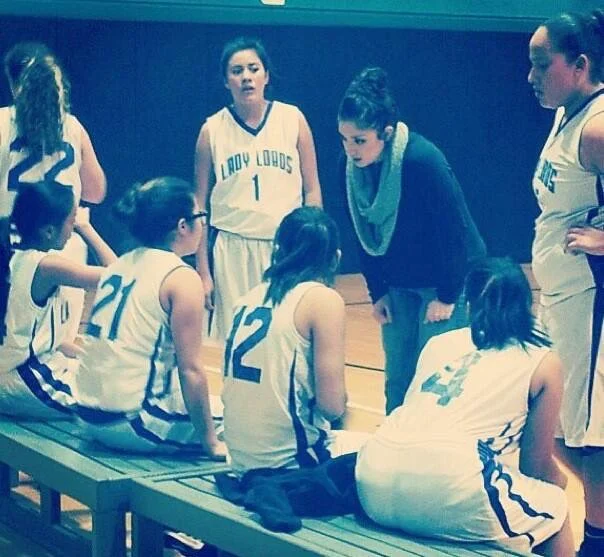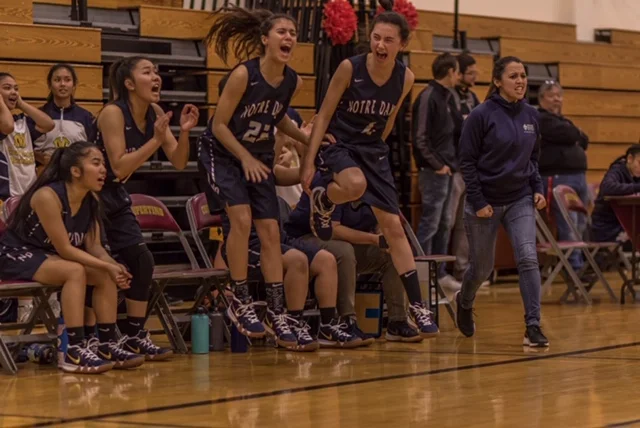Advice for Female Athletes
Sophia Arenas is a women’s basketball coach in the San Francisco Bay Area. The article is drawn from an email interview about the challenges women face as athletes and suggestions about how to overcome them.
1. You have a Master's Degree in Sports Studies (sport psychology/sport sociology). What drew you to specialize in the field?
Well, as an undergrad I majored in both psychology and sociology. However, when I graduated I realized that I really did not want to pursue a career in counseling or social work, and was unsure of what I wanted to do. One thing that I was always passionate about was sports. While I tried to figure out what I wanted to do, I got back into playing basketball, and joined a women’s recreational league and soon after began coaching at a small local charter school. That was definitely the missing piece in my life. Then one day while talking with a friend and explaining my dilemma, she mentioned the field of sport psychology, and that was it. It was the perfect area of study for me to combine all my interests. My passion for sports and love of psychology and sociology.
2. Why do you think it has been so hard for women in sport to be recognized and compensated (whether by acknowledgment or financial reward)?
Well, I think because sport historically has been a male-dominated domain. A female entering this domain is often seen as deviant and made to feel inferior for crossing into the ‘boy’s club’. The idea that a woman can have equal or superior knowledge of sports compared to a man is something our society still has not accepted to be true. Professional sports teams and organizations want the best in order to be competitive: the best coaching staff, athletic trainers, the best general managers, CEOs, etc. Therefore, if the assumption is that men are more knowledgeable than women in this arena, then why would they be looking for a woman to fill those positions?
3. What is the most difficult aspect of being a woman athlete?
I think they are many aspects of being a female athlete that are difficult and they have experiences unique to their journey. As a female athlete your ability or knowledge about your sport will always be put to the test against the knowledge or ability of a man. Often, for a female athlete to be taken seriously she first has to SHOW that she can play. She has to demonstrate her talent or give specific detail about the sport in order to be invited to the proverbial table. Men have the luxury of walking onto any court or into any sports bar and not have to prove themselves to join in the game or share an opinion.
Another aspect is the stereotypes that go along with females who play a particular sport that society has deemed more masculine; i.e., basketball or softball. The stereotype being female basketball players/ softball players are more masculine or lesbian. Female athletes often struggle with the pressure of upholding traditional gender norms and competing in a sport they not only love, but in which they excel. However, It’s sort of a Catch 22. Females who might wear makeup or wear their hair in a certain way in an effort to appear more feminine while participating in her sport can run the risk of not being seen as a serious contender by her peers or spectators. They may perceive her as “too girly” or not as “tough as the boys”.
4. What would you tell little girls who want to pursue competitive sports?
As a coach of a female team myself, I always make sure that I am encouraging my athletes to continue to grow and develop their skills in order to advance to the next level. I think it is important for them to feel supported and motivated in order to have the desire continue. I would encourage little girls to participate in competitive sports because of the number of the potential benefits it can offer if the environment is positive and constructive. I believe it’s also important for female athletes to either volunteer with local sports clubs or coach young girls at their local community center. To be visible in the community and show little girls that it's ok to play sports, its ok to get dirty, it's ok to play with the boys, and that playing sports doesn’t make you any less of a girl.
5. What indicators do you think there will be that show women have gained parity with men in sports?
I think what would show that woman have gained parity with men would ultimately be when you see women coaching professional men’s sports teams. When professional male athletes can take the direction and criticism of a female head coach, then we have ourselves a ball game.











